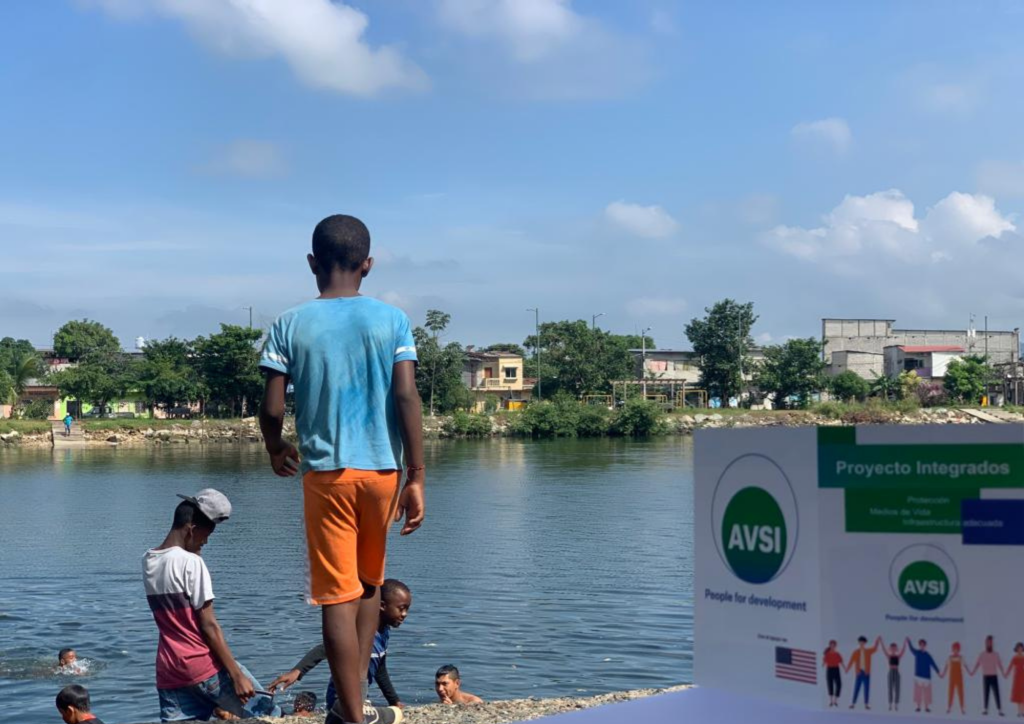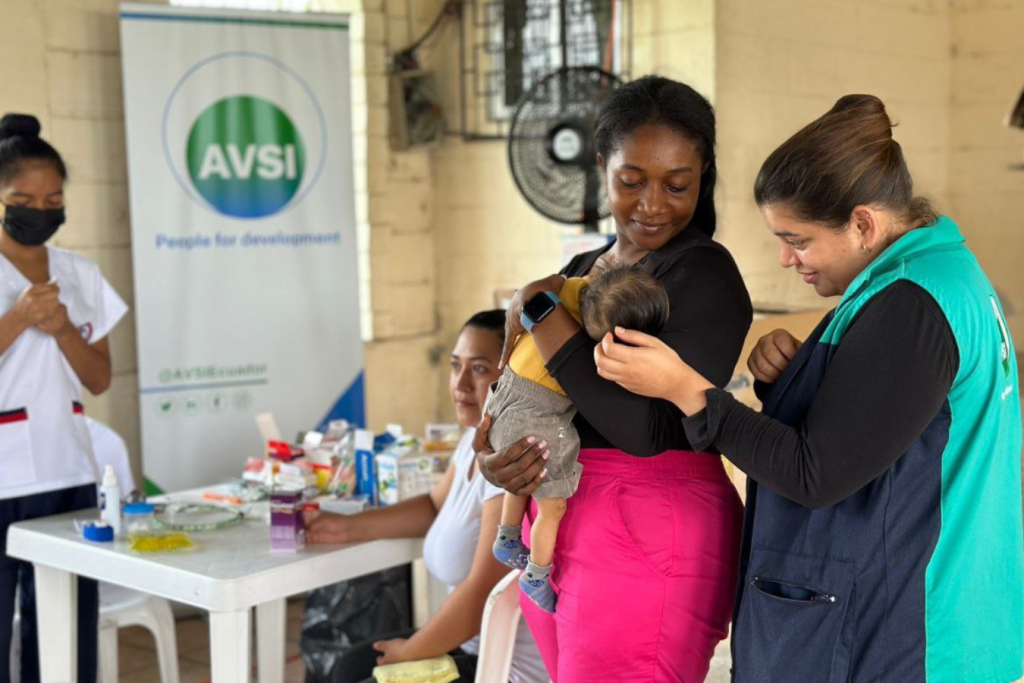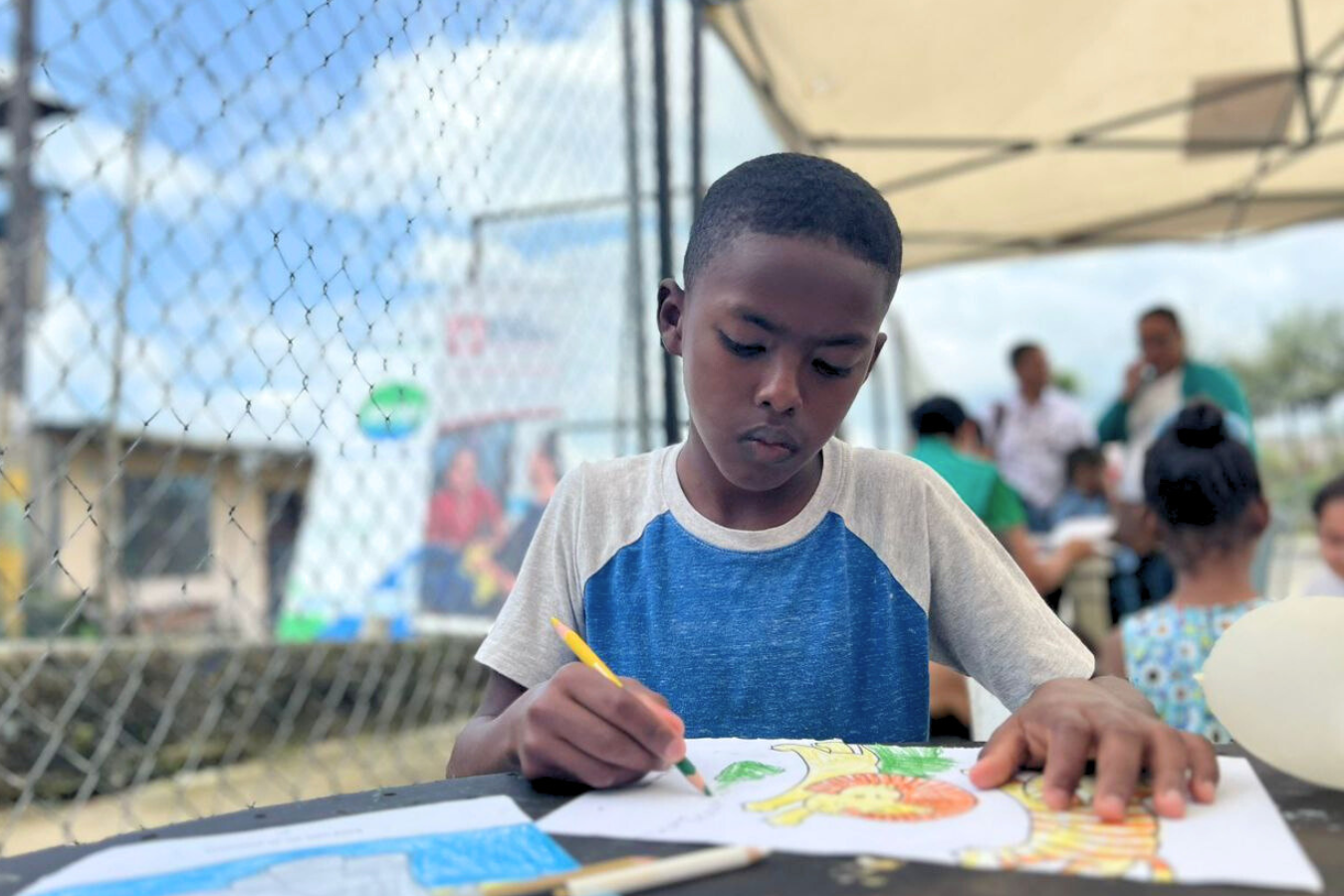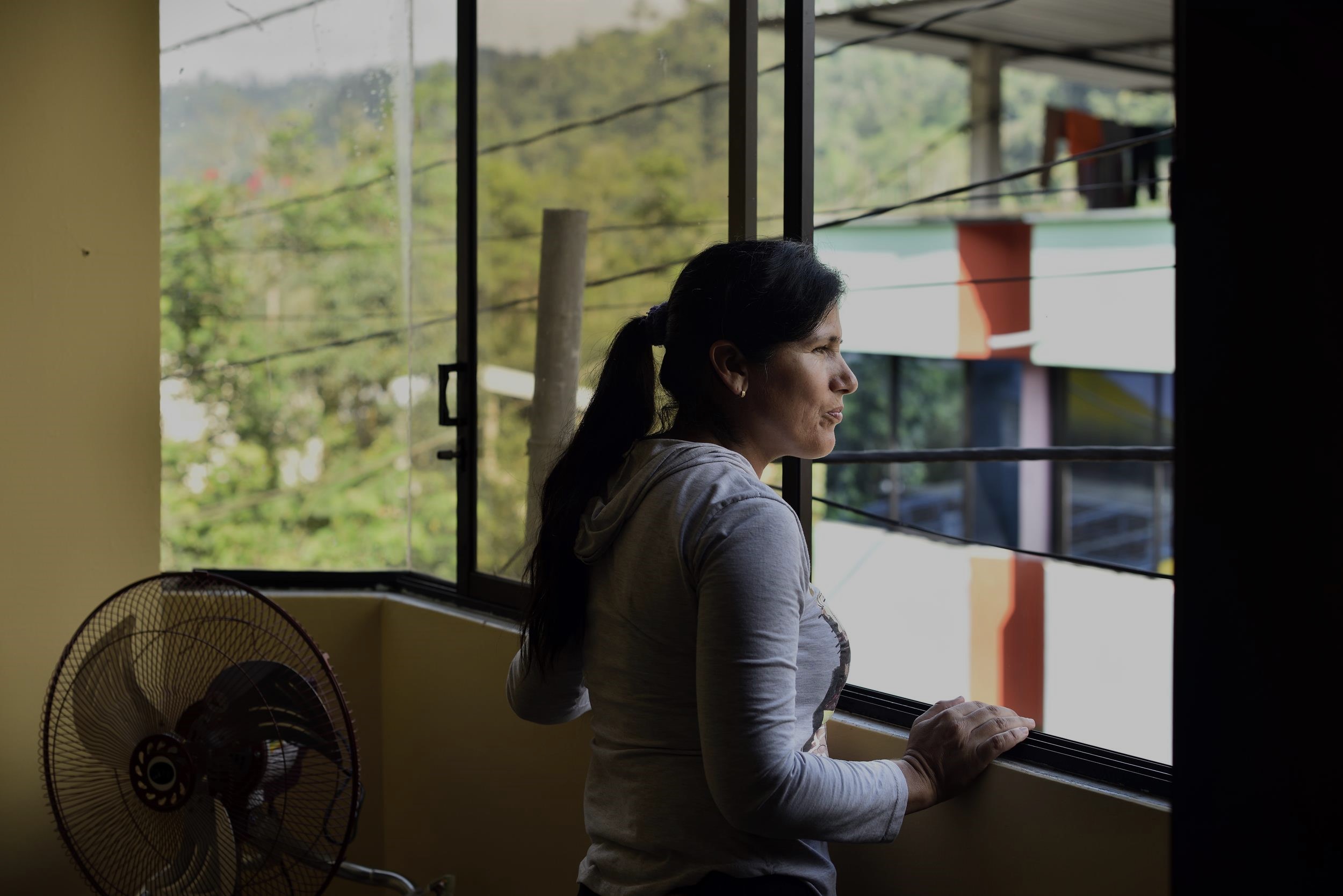AVSI in Ecuador
- Quito HQ Office Av. 6 de Diciembre N33-382 y Eloy Alfaro
Edificio Ziza. Piso 9. Oficina 902.
Quito, Ecuador
Phone: 023 923 238.
[email protected] - Portoviejo Office Calle Los Amigos, entre Chile y Ricaurte
Portoviejo, Ecuador
Phone: 096 765 8100 - Machala Office Callejón 4ta Norte, entre Santa Rosa y Vela
#906 PB
Machala, Ecuador
Phone: 098 863 9023 - Cuenca Office Avenida 12 de Abril y Francisco Tálbot
Coworking Impaqto Of. 106
Cuenca, Ecuador
Phone: 098 72 53 994 - Guayaquil Office Parque Empresarial Colón
Edificio Empresarial 1, piso 2, oficina 205
Guayaquil, Ecuador - Santo Domingo Office Av. Quito y calle Tulcán.
Edificio Hidalgo Ordóñez, 5to piso. Oficina 251
Santo Domingo, Ecuador
AVSI has been present in Ecuador since 2001, initially with an education project for vulnerable children in urban marginal neighborhoods. In 2016, AVSI extended its intervention in the Country toward projects in response to the crisis that emerged after the earthquake in Manabí, the coastal province situated in the western part of Ecuador, and the increasing challenges related to migration fluxes from Venezuelan human migration.
Today, the situation in Ecuador is still challenging. The poverty rate rose from 21.5% in 2017 to 25.2% in 2022 while, in the same period, the level of extreme poverty passed from 7.9% to 8.2%. The majority of the population who lives under the poverty line reside in rural areas (World Food Program, 2023).
The presence of AVSI inside the Country aims to continue to offer humanitarian actions for vulnerable people to address social issues such as security, peace-building interventions, chronic malnutrition, and economic crisis.
From Venezuela to Ecuador: the issue of migration
Since the crisis that hit Venezuela in 2013, the migration theme has acquired considerable relevance in Ecuador. As a matter of fact, Ecuador has become one of the main destinations for Venezuelans to seek refuge from the dire economic conditions and lack of essential services in their home country.
According to UNHCR (2022), Ecuador is host to the third-largest Venezuelan refugee and migrant population worldwide: in July 2023, there were at least 502,200 Venezuelan refugees and migrants in Ecuador, 70% of whom live in the western provinces of Guayas, Manabí, and Pichincha.
Ten years after the Caracas crisis, the situation for Venezuelan migrants and refugees remains challenging. They often arrive in Ecuador with limited resources and rely on local support networks and humanitarian assistance to meet their basic needs. Access to healthcare and education can be difficult, and job opportunities are often informal and low-paying, generating economic insecurity. Hence, the Ecuadorian government, in cooperation with international organizations, has initiated programs and policies aimed at assisting Venezuelan migrants.
AVSI initiatives to enhance the quality of life for Venezuelan migrants
The first AVSI project to support Venezuelan in Ecuador took place from 2018 until 2023 and was entitled “Activados". The project, realized in collaboration with UNHCR, aimed to integrate migrants and refugees into the host community, working around the three essential pillars: community protection, livelihood generation, and access to decent housing.
In the provinces of Guayas, Manabí, Azuay, Santo Domingo, and Pichincha, AVSI Ecuador worked to build Adaptive Community Protection networks. The local staff trained community members in Gender-Based Violence (GBV) prevention, child protection, and community health promotion. The project also strengthened a sense of readiness in the communities, to form risk management committees and prioritize climate change mitigation and environmental sensitivity as a community activity.
In 2020 a new project started with the name "Integrados". The Bureau of Population, Refugees, and Migration (PRM) of the U.S. Department of State financed the initiative in partnership with the Italian organization COOPI. The project will end in 2024, and it has its focus on providing protection, livelihoods, adequate infrastructure, and funding for civil society organizations in Manabí, Pichincha, Guayas, El Oro, and Santo Domingo de los Tsáchilas Provinces.
Another project, called "HOPE" has started in 2023 with the funds of the European Union and the implementation of ADRA Peru and Ecuador, alongside AVSI Ecuador. The initiative has been contributing to enhance the quality of life for Venezuelan migrants by intervening in the sectors of health, protection, food security, and livelihoods in Ecuador's Carchi, Guayas, El Oro, and Peru's Tumbes regions.

Child Chronic Malnutrition in Ecuador
Another significant issue in Ecuador is the one of child chronic malnutrition, which remains, over the years, a pressing concern, affecting a considerable number of children in the Country. According to the World Food Program (2023), in Ecuador, 23.9% of children under the age of five suffer from chronic malnutrition. Several factors contribute to this alarming issue, including limited access to nutritious food, inadequate healthcare, and socioeconomic disparities. Many families in impoverished regions struggle to provide their children with essential nutrients, leading to stunted growth and long-term health problems. Additionally, access to clean water and sanitation services is often limited in rural areas. The government and various organizations have been working to address this issue by implementing nutrition programs, improving healthcare access, and promoting education on proper nutrition. However, the battle against child chronic malnutrition in Ecuador continues to be an emergency public health challenge.
AVSI interventions to tackle child chronic malnutrition in Ecuador through projects for local sustainable development.

The “RAÍCES” project, supported by the Italo-Ecuadorian Fund for Sustainable Development (FIEDS), has been tackling chronic child malnutrition (2023-2025). The initiative focuses on identification, treatment and prevention of child chronic malnutrition through clinical, psychological, pedagogical, social, and community axes in Santa Elena and Chimborazo Provinces, and it resulted from the collaboration with remarkable partners such as the Sembrar Foundation, the International University of Ecuador (UIDE), and the Brazilian AVSI founding member Cren.
In 2023, the Child Cronic Malnutrition (DCI) and sustainable development rural project “PANGUA”, funded by a private donor, has launched initiatives to deal with health, water management, nutrition and food safety with the communities in La Envidia and Punta Brava, located in Cotopaxi province.
Human rights promotion: vocational training to Adults Deprived of Liberty and Adolescents
Since 2016, in association with the former Ministry of Justice, Human Rights and Cults of Ecuador, AVSI Ecuador has been working for the social rehabilitation of people deprived of liberty at the Cotopaxi Regional Social Rehabilitation Center, located in Latacunga. Through these activities, the project promotes the development of IT and entrepreneurship skills, preparing interns to successfully reintegrate into society.
Starting on 2021, the initiative has been supported by the National Comprehensive Care Service for Adults Deprived of Liberty and Adolescent – SNAI, focusing mainly on the work at the women's ward of the same rehabilitation center.
In the past, this action was co-funded by the CISCO Networking Academy, a Cisco corporate social responsibility program. The “Segunda Oportunidad” project, (2021-2024) was supported by AVSI-USA and co-financed by the Weyerhaeuser Family Foundation, as part of its international initiatives.
Education and the Distance support program with AVSI in Ecuador
In the education field, AVSI Ecuador is active in collaboration with Fundación Sembrar and CUET, and supports children and adolescents through the Distance support program at Pichincha and Manabì provinces, safeguarding family rights and nurturing the comprehensive educational process.

help a child grow up and thrive in Ecuador
In addition, AVSI has worked on different local projects with several donors, such as the United Nations Development Program, the International Labor Organization, the International Organization for Migration, the German Cooperation Agency GIZ, private organizations and the respective local governments, always with a focus on social integration and network building.











